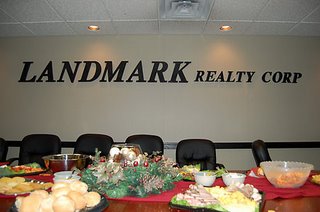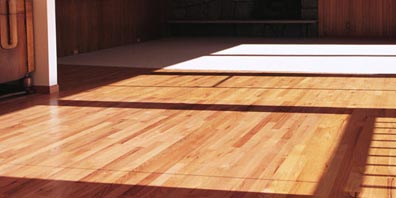
You are about to invest in your most valuable asset. Many home buying steps are standard yet there might be slight variations depending on the real estate laws and regulations where you live. Here are our top ten recommendations to make you more confident as you embark on your home buying journey.
1. YOUR CREDIT RATING
Getting your finances in order is probably the most important step you should take. Your credit reports are an ongoing look at how you manage your finances. You must know exactly what your credit reports say about your financial history before you apply for a mortgage, because the reports play an important role in the mortgage approval process and in determining the interest rate and other loan terms that a lender offers you.
2. UNDERSTANDING HOW MORTGAGE WORKS
Get familiar with the mortgage laws, structure and options. That way, you will be able to decide on the right loan and lender - crucial to your home buying success. It's up to you to determine which lender is best for your needs, and it's always a good idea to have at least a bit of background about the loan process before you talk to a lender.
3. GETTING A MORTGAGE PRE-APPROVAL
Do you know how much house you can afford? Probably not, unless you've talked with a lender. Pre-approval helps you in other ways. Consider this scenario. A home seller gets two similar offers. One is accompanied by a letter from the buyer's bank that states she is pre-approved for a mortgage in the amount of the offer. The other has no supporting documents. Which offer do you think the seller will consider first?
4. SORTING OUR YOUR NEEDS AND YOUR WANTS
Buying a home isn't as difficult as you might think, even if you're short on funds. But the process will go a lot smoother if you get familiar with your real estate market and narrow down your wants and needs before you start looking at houses.
5. PREPARING TO WORK WITH REAL ESTATE AGENTS
Real estate agents represent buyers, sellers, or both for they can work as neutral facilitators for either party. It's essential to understand agent duties and loyalties before you make that first phone call.
6. THE GREAT HOME SEARCH
The Internet is a great tool - you can spend endless hours searching public version of Multiple Listing Service websites. Besides, your agent too will give you multiple listing sheets to study. You can also pick up House For Sale magazines and read classified ads in your local newspapers. You might even plan afternoon drives to preview neighbourhoods. These are all excellent ways to see what's available out there.
7. PRE-OFFER INVESTIGATION
Deciding whether or not you want to buy a house involves a look at its structure and its features, but there are many other topics that are every bit as important to your purchase. Appoint a professional to conduct the home inspection. Study what kind of house is it - site built, modular or manufactured. Consider its market value and resale potential. Do others have a right to use the property? Can you live with the deed restrictions? Is the reported square footage accurate? Is the heating system efficient? And so on.
8. MAKING THE OFFER
There's no one set of instructions that can cover all the differences in real estate laws and customs that exist throughout, so the mechanics of making an offer and its specific contingencies depend greatly on your location. That's why you should sit with your agent, attorney or advisor to fine-tune your offer and take care of all the contractual considerations.
9. AVOIDING LAST MINUTE CHANGES
As your closing date nears, everyone involved in your real estate transaction should check its progress on a daily basis, because staying on top of things means you'll know immediately if there's a problem that must be dealt with. Here's a bit of information that focuses on a few common problems that home buyers must deal with before they close on a house.
10. BEFORE CLOSING
Most of your home buying concerns are behind you now and you're on your way to closing the event that transfers ownership of the property to you. You will encounter issues specific to your location and your transaction, issues that can best be explained and handled by your local real estate agent, your lender, your attorney, your closing agent, or others who are helping you complete the home buying transaction.
Never hesitate to ask questions. Ask as many questions as necessary to help you understand the entire home buying process. You are making a long term commitment and spending a major amount of money--you'll feel much better about the transaction if you stay informed and understand what's happening every step along the way.
Source: HGTV.ca
Posted by
David Shieh- Abbotsford Real Estate Agent Landmark Realty Corp.
You are about to invest in your most valuable asset. Many home buying steps are standard yet there might be slight variations depending on the real estate laws and regulations where you live. Here are our top ten recommendations to make you more confident as you embark on your home buying journey.
1. YOUR CREDIT RATING
Getting your finances in order is probably the most important step you should take. Your credit reports are an ongoing look at how you manage your finances. You must know exactly what your credit reports say about your financial history before you apply for a mortgage, because the reports play an important role in the mortgage approval process and in determining the interest rate and other loan terms that a lender offers you.
2. UNDERSTANDING HOW MORTGAGE WORKS
Get familiar with the mortgage laws, structure and options. That way, you will be able to decide on the right loan and lender - crucial to your home buying success. It's up to you to determine which lender is best for your needs, and it's always a good idea to have at least a bit of background about the loan process before you talk to a lender.
3. GETTING A MORTGAGE PRE-APPROVAL
Do you know how much house you can afford? Probably not, unless you've talked with a lender. Pre-approval helps you in other ways. Consider this scenario. A home seller gets two similar offers. One is accompanied by a letter from the buyer's bank that states she is pre-approved for a mortgage in the amount of the offer. The other has no supporting documents. Which offer do you think the seller will consider first?
4. SORTING OUR YOUR NEEDS AND YOUR WANTS
Buying a home isn't as difficult as you might think, even if you're short on funds. But the process will go a lot smoother if you get familiar with your real estate market and narrow down your wants and needs before you start looking at houses.
5. PREPARING TO WORK WITH REAL ESTATE AGENTS
Real estate agents represent buyers, sellers, or both for they can work as neutral facilitators for either party. It's essential to understand agent duties and loyalties before you make that first phone call.
6. THE GREAT HOME SEARCH
The Internet is a great tool - you can spend endless hours searching public version of Multiple Listing Service websites. Besides, your agent too will give you multiple listing sheets to study. You can also pick up House For Sale magazines and read classified ads in your local newspapers. You might even plan afternoon drives to preview neighbourhoods. These are all excellent ways to see what's available out there.
7. PRE-OFFER INVESTIGATION
Deciding whether or not you want to buy a house involves a look at its structure and its features, but there are many other topics that are every bit as important to your purchase. Appoint a professional to conduct the home inspection. Study what kind of house is it - site built, modular or manufactured. Consider its market value and resale potential. Do others have a right to use the property? Can you live with the deed restrictions? Is the reported square footage accurate? Is the heating system efficient? And so on.
8. MAKING THE OFFER
There's no one set of instructions that can cover all the differences in real estate laws and customs that exist throughout, so the mechanics of making an offer and its specific contingencies depend greatly on your location. That's why you should sit with your agent, attorney or advisor to fine-tune your offer and take care of all the contractual considerations.
9. AVOIDING LAST MINUTE CHANGES
As your closing date nears, everyone involved in your real estate transaction should check its progress on a daily basis, because staying on top of things means you'll know immediately if there's a problem that must be dealt with. Here's a bit of information that focuses on a few common problems that home buyers must deal with before they close on a house.
10. BEFORE CLOSING
Most of your home buying concerns are behind you now and you're on your way to closing the event that transfers ownership of the property to you. You will encounter issues specific to your location and your transaction, issues that can best be explained and handled by your local real estate agent, your lender, your attorney, your closing agent, or others who are helping you complete the home buying transaction.
Never hesitate to ask questions. Ask as many questions as necessary to help you understand the entire home buying process. You are making a long term commitment and spending a major amount of money--you'll feel much better about the transaction if you stay informed and understand what's happening every step along the way.
Source: HGTV.ca
Posted by
David Shieh- Abbotsford Real Estate Agent Landmark Realty Corp.























